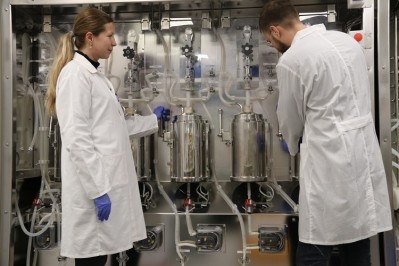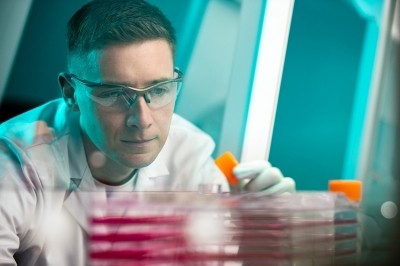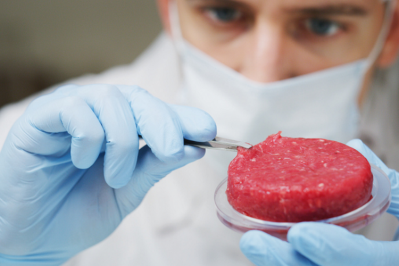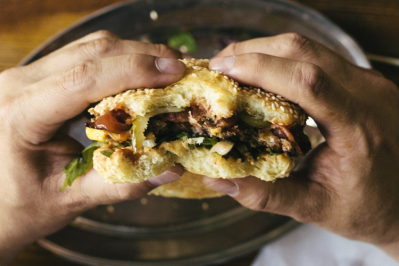Beating the bioreactor bottleneck… German start-up plans ‘bigger and more out-of-the-box ways’ to scale cultivated meat
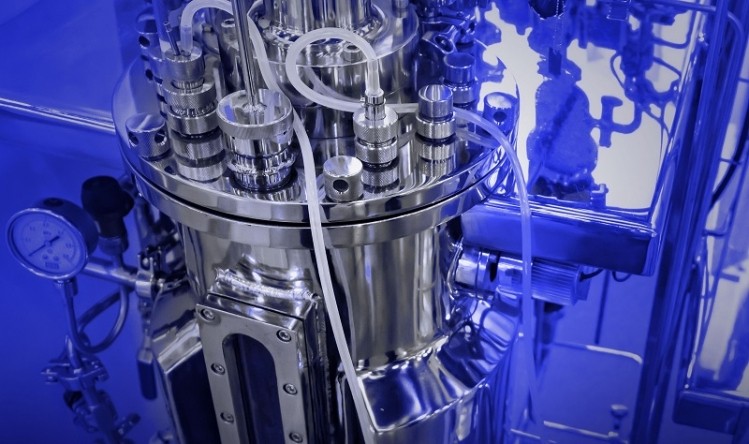
The bioreactors currently available to cellular agriculture innovators are designed to be used ‘by scientists, not for factory workers’. That’s the complaint of German-based bioengineering company The Cultivated B. (TCB). After securing what it claims is the largest round of seed funding within the cellular agriculture industry in Europe, it has just announced it is emerging from ‘stealth mode’ to fix the lack of industrial scale bioprocessing capacity that remains a bottleneck to the industry.
The company has been operative for just over a year and a half. But it boasts a grand plan of providing the licenses and products to enable industrial scaling of cellular agriculture and alternative protein production.
Cellular agricultural methods are intent on finding new methods of producing proteins and fats, without the environmental and animal welfare problems that many associate with traditional agriculture.
A further appeal of the sector, believes TCB, is that it opens the door to creating resources with specific nutrients in mind, in contrast to the fixed protein and nutrients within animals and plants.
Cell ag start-ups, however, acknowledge that achieving scale is a hurdle to commercialisation. Industrial scale bioprocessing capacity remains a bottleneck to the industry and is largely unavailable. From its research and development centre in Heidelberg and manufacturing facility in Canada, TCB has therefore assembled a multinational, fast-growing team of scientists using cellular agriculture, precision fermentation, and new approaches in bioreactor technology. The aim is to develop cell cultures, know-how (IP), technologies, and products that will enable other businesses to produce alternative proteins at an industrial scale.
The company produces and sells bioreactors, photobioreactors, and high-precision devices for cellular agriculture. It also provides licenses for proprietary cell lines or cultivating meat and organs of different species, assays, and genetically modified seeds for precision fermentations.
It is now looking to build global strategic partnerships with leading government institutions, bioengineering, pharma, and nutraceutical companies as well as food and beverage producers and retailers.
Besides its own field of work that largely deals with technology for cell-based meat and precision fermentation in plants, the company will provide growth factors for cultivated meat production, and also enzymes and other proteins that can support the techno-functional properties of meat and dairy alternatives.
A vision of providing pioneering technology to all
“TCB’s goal is to transform the cellular agriculture industry and enhance access to plant and cell-based alternative protein sources at an industrial scale,” said TCB co-CEO Raphael Heiner. “This will not only play a role in our over-consumption of natural resources but also enable multiple industries to think of bigger and more out-of-the-box ways for how alternative proteins can be used.”
Heiner has spent the last 20 years advising global institutions like UNWFP, UNHCR, and UNICEF and global companies like Schwarz-Group, ALDI, Carrefour, Coca-Cola, Sony, and Volkswagen on business strategy, business model design, innovation, and digital transformation. TCB’s technology will be the “steppingstone for government organizations, massive food corporations, and pharmaceutical companies to transition their protein products into more sustainable and healthier solutions”, he added.
Cellular agriculture has the power to transform and improve many different industries, added TCB co-CEO Dr. Hamid Noori. But he denied the company is casting its net too wide by targeting food, pharmaceutical, and cosmetic industries.
“While on the surface the food, pharmaceutical, and cosmetic industries look fundamentally different, when it comes to utilizing biotechnology for them, there are similar needs and approaches,” he told FoodNavigator. “There are also common features in the underlying technology applied to the different domains. The recent surge of biotechnological applications in the food industry majorly benefits from previous developments in the biomanufacturing of biologic drugs.”
TCB is therefore looking to serve these domains by providing “robust” high-precision technology and bioengineering, which can be adjusted based on the specific demands of each industry, he told us.
Both food and pharmaceutical industries require advanced bioreactors, but for different purposes, for example. “In the food industry, the demand for bioreactors is increasing to enable the industrial production of cultivated meat. The pharmaceutical industry has been using bioreactors for several decades for the production of biologic drugs, such as monoclonal antibodies and vaccines.”
The company’s wide net will further allow it to exploit different revenue streams. As well as producing cultivated meat, for example, it can produce other proteins and enzymes that can act as medication for complex diseases or present integral elements of skin protection and regeneration products.
“TCB has spent a large amount of time and energy analyzing not only the market but systematically investigating the current and future technological challenges ahead of the entire field of cellular agriculture and precision fermentation,” explained Noori. “We are convinced that industrial production will not be feasible unless several critical issues are resolved. Thus, our large R&D department has been working intensively and successfully in solving these bottlenecks. Once we have robust and reliable solutions (such as optimized bioreactors and media, GMO and non-GMO immortalized cell-lines of different animal species), we have taken an important step in manufacturing and providing the solution as physical goods or licenses to the struggling industry.”
‘Inherently modular design’
Other companies, however, have a broad selection of bioreactors and fermenters to offer the food industry to produce at scale. So, what’s the real differentiator for TCB's business?
“Think about Tesla or Apple,” responded Noori. “They have developed a different approach to personal computing, communication, or mobility. These approaches were not only driven by high-quality engineering and design but primarily by focusing on the ease of use of their products for customers. The success of the field of cellular agriculture as an industrial domain strongly depends on technology and, more precisely, machinery that can be used not just by academics… The current bioreactors on the market clearly are designed to be used by scientists of the highest educational background and not for factory workers.”
TCB’s is therefore looking to give its bioreactors an ‘inherently modular’ design which makes them suitable also for start-ups and smaller companies. “While we provide high-end precision systems, we designed our reactor systems so that with a few simple moves the reactor can be used for a different purpose. Since reactors are normally a major upfront investment, this modularity allows companies to have a high level of flexibility for testing their products and ideas, as well as for conducting proof of concept studies using only one system. This approach is unique for bioreactor companies and has been enabled by following model-based systems engineering standards in a similar manner as conducted by the aerospace industry.”
Sustainable industrial production
The quest for more environmentally sustainable production methods is obviously a big draw of the cellular. But the company is also looking to address questions regarding the eventual environmental impact and energy use of industrial scale cell ag and precision fermentation production.
“Many bioreactor providers currently promote the usage of single-use vessels, and they are responsible for most of their sales volume,” pointed out Noori. “We believe that this is the wrong approach for our planet. Therefore, all our reactors are reusable no matter what size they have. Moreover, all our devices are energy-optimized and consume minimum electricity to run.”
The company’s main challenge – on top of scalability, cost of investment, surpassing regulatory constraints, and increasing public acceptance – is therefore providing high-quality, safe, and sustainable industrial production to make products sustainable, we were told.
“It would not make much sense to provide an alternative to conventional protein supplies that is not superior in terms of sustainability,” observed Noori. “This means that besides enabling scalability, our main challenge is to make sure that resources are used optimally. This can translate into optimal process design so that the resources are used at the minimum but can also translate into identifying creative approaches to recycling used resources. TCB is intensively conducting research in both directions and is developing methods to overcome this major challenge."
